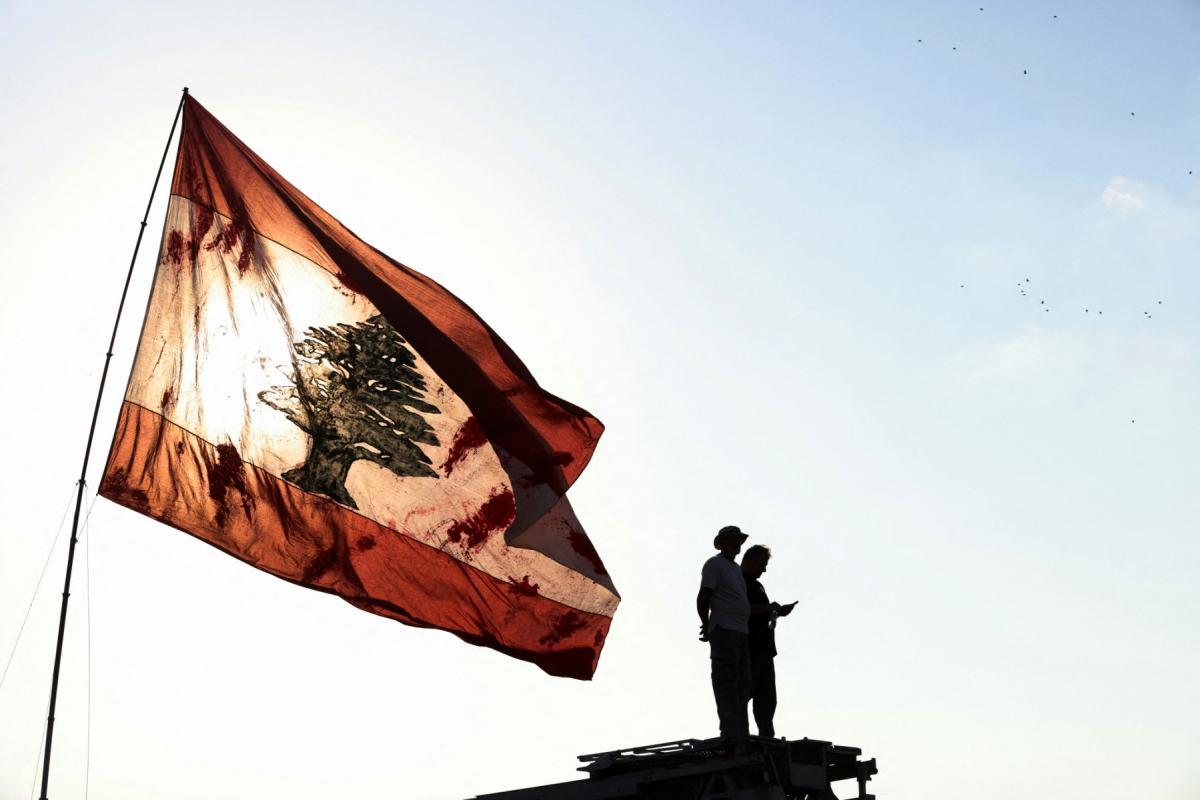Three recent positive developments have sparked cautious optimism about Lebanon’s future—but one major red flag continues to cast a shadow, leaving the overall situation, in the words of a political figure, “topsy-turvy.”
A Glimmer of Hope: The Three Positive Signals
The first positive sign came from Washington: U.S. President Donald Trump announced the lifting of sanctions on Syria. If the country stabilizes, this move could pave the way for the return of Syrian refugees from Lebanon to their homeland, allowing them to participate in reconstruction efforts after 14 years of devastating war. The cancellation of the Caesar Act sanctions could also allow Lebanon to address part of its chronic energy crisis—by importing fuel and gas from Egypt and Jordan via Syria, and receiving fuel supplies from Iraq, provided that the powerful generator mafias allow it.
The second sign of hope emerged at the Central Bank. The newly appointed governor, Karim Souaid, handed over all requested documents to Alvarez & Marsal, the firm tasked by the Ministry of Finance with forensic auditing. The Central Bank has also expressed full cooperation should the Lebanese government expand the company’s mandate in line with transparency principles. This step builds on the forensic audit initiative championed by former President Michel Aoun—an effort that was long obstructed by domestic players, notably former governor Riad Salameh. While reactions have been muted, the Free Patriotic Movement has welcomed the move, expressing hope that the audit will expose deposit theft, hold culprits accountable, and help restore funds to their rightful owners. It may also identify anyone—individuals or entities—linked to the bank, whether directly or indirectly, suspected of embezzlement or illicit enrichment.
The third positive sign is democratic resilience: Lebanon is moving ahead with the final phase of its municipal and local elections, held this Saturday in the southern provinces of South Lebanon and Nabatieh. Despite ongoing Israeli threats and attacks that have devastated homes and lives, southerners are responding not with fear but with ballots. Their votes symbolize resilience, hope, and an unwavering commitment to their land and future—defying not just Israel, but also regional, international, and domestic pressure.
A Major Red Flag… and More
Yet, from the heart of this democratic exercise springs a stark warning: the biggest negative indicator remains the inertia of Lebanon’s leadership. Over 100 days into their term, the president and government have yet to take key decisions—especially those demanded by international and regional backers, with the most pressing being the disarmament of Hezbollah.
Calls to address this issue grow louder by the day, while the government insists on dialogue—a process said to be quietly in motion but unlikely to satisfy those pulling the strings. It seems that those who facilitated the rise of the current ruling team did so based on promises of swift action. Instead, they’ve been met with delay after delay. How long will this pattern continue? And how much longer will their foreign sponsors tolerate it?
There’s also growing concern that a domestic party might take matters into its own hands—potentially destabilizing Lebanon’s delicate power-sharing formula and long-standing political customs. Even more concerning, this could happen with the tacit approval of external powers.
In this context, the fear grows that peace with Israel is no longer a matter of “if,” but “when”—and that it may come as an imposed reality, not a negotiated choice. I raised this concern in my column last week, and the signs have only grown stronger.
Two Additional Negative Signals
Beyond this looming threat, two other negative trends have emerged:
The first is the aggressive, exclusionary behavior shown by some political factions following their municipal election victories in various cities. How can a viable state be built when this is the mindset of its people?
The second is a presidential statement warning journalists against criticizing "friendly" nations. Since when does freedom of expression in Lebanon bow to foreign sensitivities? Is yesterday’s enemy not today’s ally, and vice versa? Lebanon has long prided itself on its press freedom. One person’s opinion—whether supportive or critical of any state—does not and should not reflect Lebanon’s official stance.
In the end, a wise observer would take note of all these signs—good and bad—and read between the lines.
Please post your comments on:
[email protected]
 Politics
Politics







